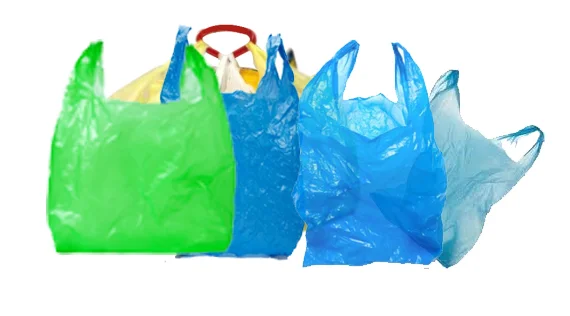
SEATTLE (Scrap Monster: Governments are taking action against single-use plastics. British Columbia has recently passed a law banning them, starting on December 20th, 2023. The bill aims to prevent the production of packaging that accounts for about half the province’s annual volume of plastic pollution. It’s one more welcome step toward a sustainable, circular economy.
Until recently, plastic regulations have focused on cleaning up polluting plastics. However, recent laws aim to prevent the production of materials that pollute land and waterways. When B.C.’s ban takes effect, single-use plastics, such as straws, plastic lids, and food containers, will no longer be allowed at grocers, restaurants, or food delivery services.
“Recycling is important, but we need to prevent plastic from becoming waste in the first place,” said Lyndsay Poaps, executive director of the Recycling Council of British Columbia. “Regulating single-use and plastic items province-wide, and harmonizing that regulation with those of senior government, will help B.C. evolve to a more circular economy.”
The legislation follows national bans by the Canadian government, which take effect on the same day in December, in Britain, and at U.S. National Parks.
Starting December 20th, plastic bags provided by grocery stores must be durable enough for at least 100 uses, contain 40% recycled plastic, and cost C$2.00 to support collection programs. Grocers can provide free bags if they are recycled, used, or reusable. Additionally, plastic ring carriers for cans and flexible straws attached to drink cartons will be banned across Canada in June 2024.
Restaurants and grocers will no longer be allowed to use expanded polystyrene and PVC takeout containers, plastic dinnerware, and plastic stoppers in drink containers, among many changes. Wooden utensils, for example, may become common. Oxo-degradable bags, which contain an additive that accelerates the breakdown of the plastic, will be banned because they can leave harmful microplastics in soils when composted incorrectly. However, grocers can still use polystyrene meat packaging until 2030.
In the food service industry, items made of biodegradable plastic, compostable plastic, polystyrene foam, clear polyvinyl chloride (PVC), or polyvinylidene chloride will no longer be allowed. Sustainable alternatives to plastic straws, condiment packaging, cups, lids, and hot drink sleeves must be offered to diners. Besides an exception for drinks delivered with plastic lids, restaurants cannot use single-use packaging.
Food delivery services, such as Uber Eats and Grubhub, will be required to keep records detailing how many plastic items customers request or accept.
How will consumers react to the changes? There will be much to learn, from the best way to replace single-use plastic service ware to new approaches to collecting and processing new materials.
British Columbia is taking a cautious approach by banning biodegradable and compostable plastics as they can still harm the environment. In the U.S., states like California and Colorado, along with six others, have implemented single-use plastic bans of varying degrees, and the results from these efforts will guide future regulations.
The B.C. law goes beyond banning single-use plastics; it aims to minimize plastic usage in the grocery and restaurant industries. The focus is on promoting paper products and gradually phasing out polystyrene foam from meat packaging by 2030 will give companies time to find suitable replacements.
By supporting local anti-single-use laws and promoting sustainable practices, we can all contribute to reducing our environmental impact and creating circular economies in our communities.
Courtesy: www.earth911.com



| Copper Scrap View All | |
| Alternator | 0.41 (0.01) |
| #1 Copper Bare Bright | 4.30 (0.1) |
| Aluminum Scrap View All | |
| 356 Aluminum Wheels (Clean) | 0.80 (0) |
| 6061 Extrusions | 0.70 (0) |
| Steel Scrap View All | |
| #1 Bundle | 360.00 (0) |
| #1 Busheling | 380.00 (0) |
| Electronics Scrap View All | |